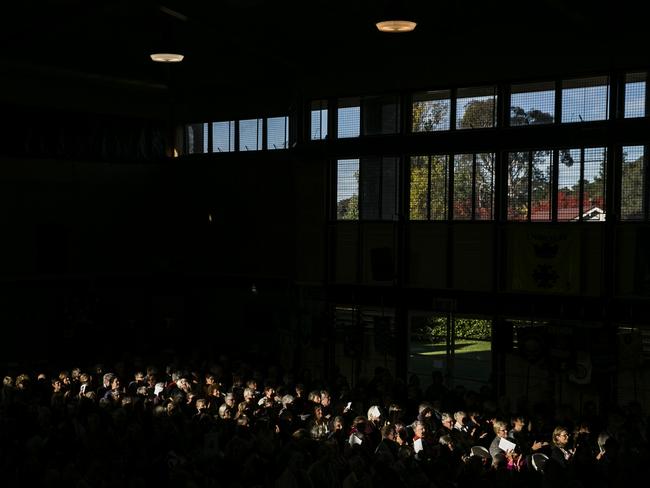Fighting off push to run Country Women’s Association from city
RURAL and regional women have fought off a brazen attempt by their progressive city sisters to take the country out of the Country Women’s Association.
NSW
Don't miss out on the headlines from NSW. Followed categories will be added to My News.
RURAL and regional women have fought off a brazen attempt by their progressive city sisters to take the country out of the Country Women’s Association.
But many traditionalists fear the CWA’s core values are under siege and resistance to the metropolitan elite’s politically correct march through the venerable organisation, established in 1922, may be futile.
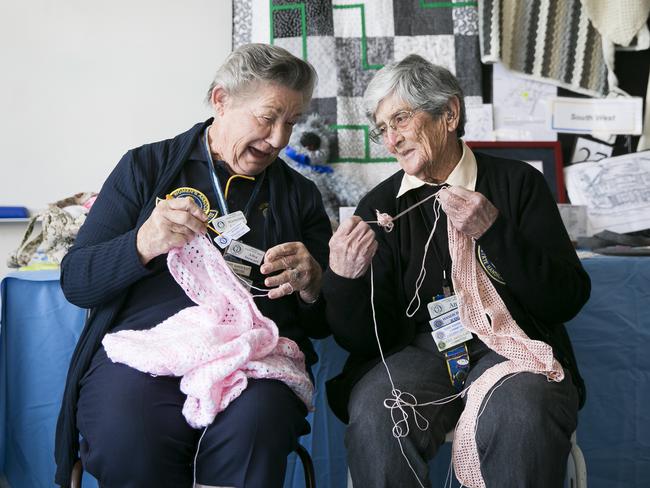
The Sydney City branch, which unsuccessfully tried to change the CWA constitution this week, has grown to be the biggest in the state with 91 members, boasting students and young professionals among them, and is poised to continue its reform campaign.
It leads a CWA faction of six city branches whose interests, according to the group’s Facebook page, include hydrogen-powered bicycles, the Sirius public housing building, harbour cruises and Mongolian photography.
Louise Roberts: CWA should not join gender politics crusade
Gender politics at centre of internal CWA battle
Tim Blair: CWA becoming Commie Women’s Association
At the NSW CWA’s annual conference in Armidale, Sydney proposed a constitutional change to allow city members to be president, a position reserved for women who are “living or have lived in rural or regional areas”.
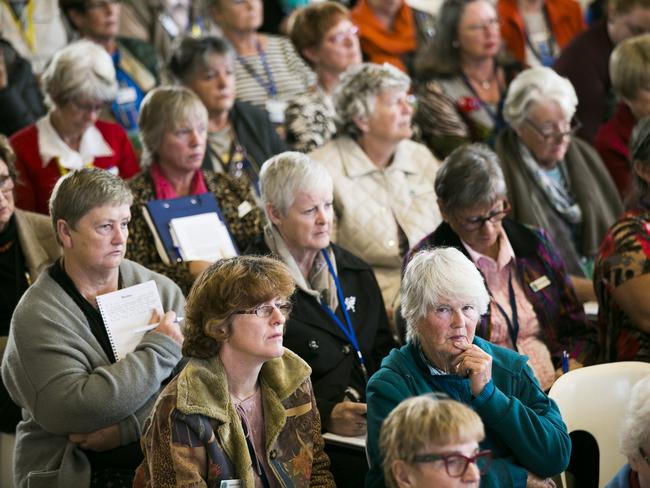
It wanted this to be changed to members who “have demonstrated interest and experience in rural and regional issues”.
As with another proposal for the CWA to support gender neutral school uniforms, it was defeated but not before an emotional debate which exposed the growing divide between city and country.
A number of rural women attacked the idea that their city cousins could speak for them.
CWA stalwart of 65 years, Eurongilly member Anne Pratt, 82, said city members had “no idea” of the everyday challenges faced by their rural counterparts, whether it be dealing with a natural disaster or “having to drive hundreds of kilometres to friends for lunch”.
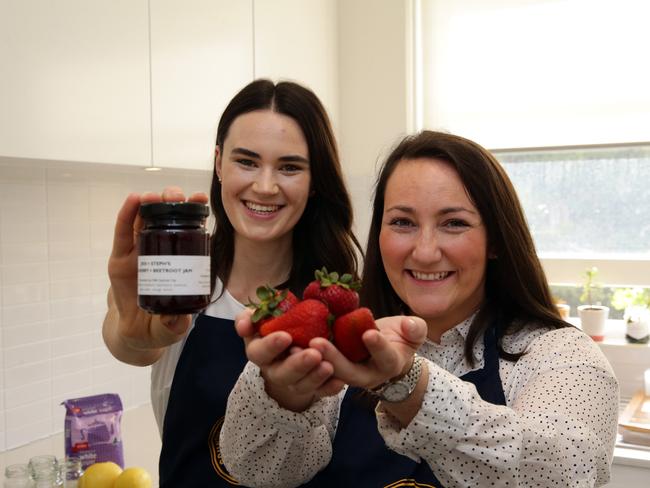
“They have different ideas. At least you’ve been in the country and gone through droughts and fires and things — if you live in the city, you have no idea of the hardships.”
Mrs Pratt said the CWA focus has slowly been shifted away from real country women’s issues.
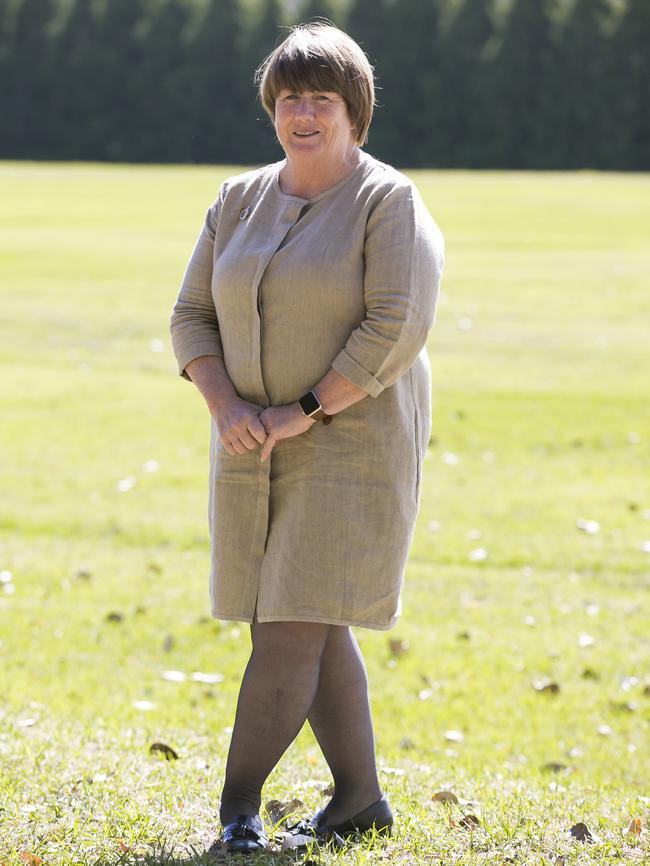
“We’re more political than what we’ve ever been. We’re non-party political but it seems to be going that way just through the resolutions that are coming through,” she said.
Oxley Group member Patrisha Hurley, 80, a former CWA state president, said Sydney City women now carried “different ideas to what that branch had when they were formed 18 years ago”.
“I’m not sure they do anything now to help young ladies coming from the country. I would hope it’s still a focus,” she said.
Another former president Audrey Hardman, 80, of the Central West, said: “We represent the Country Women’s Association, not the women’s association, and it’s unique to this organisation. Sydney City are professional women and I think they bring forward things that are very interesting but … that is where we differ very strongly.”
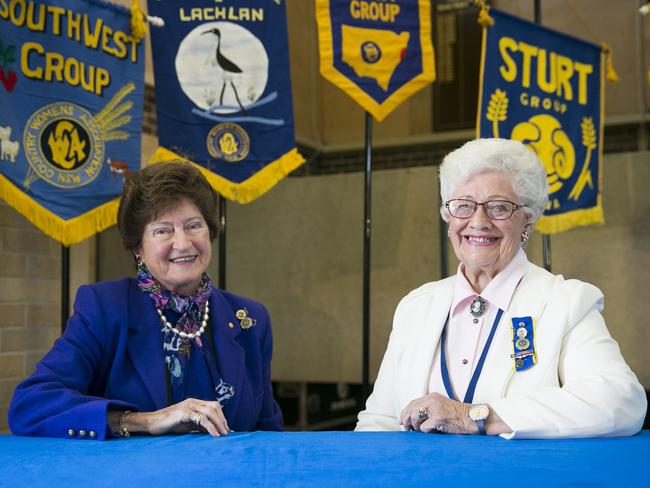
However, Jan Young, 69, of Bathurst, said the CWA did have to change.
“All ideas have a place but unfortunately they do have a lot of opposition from the traditional country branches,” said Ms Young, also the treasurer of the state land cookery committee. “Some of the ideas I agree with, others no — but it is an organisation and it does have to progress somewhat.”
Sydney City states its mission is “challenging the CWA stereotype” with the branch claiming it’s “more than just tea and scones”.
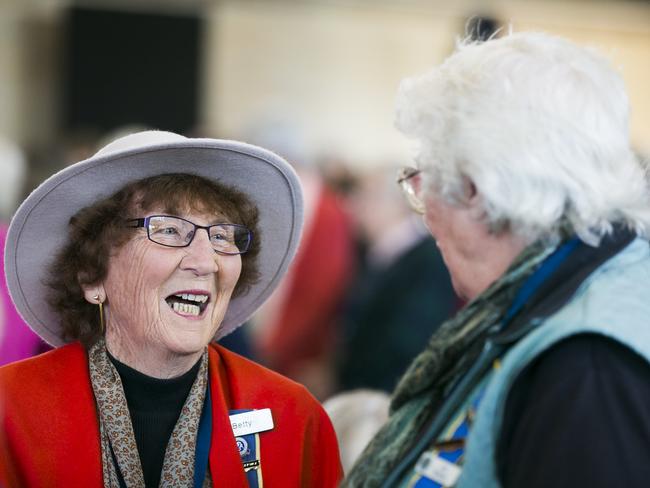
Its website says members range in age from early 20s to 70s and include young office-bearers such as Stephanie Scott and Jessica Best, who have previously made the news showing off their jam-making skills.
Its president Elizabeth Nash declined to speak to the Daily Telegraph but was quoted in The Land as saying metro members were a growing source of membership and fundraising.
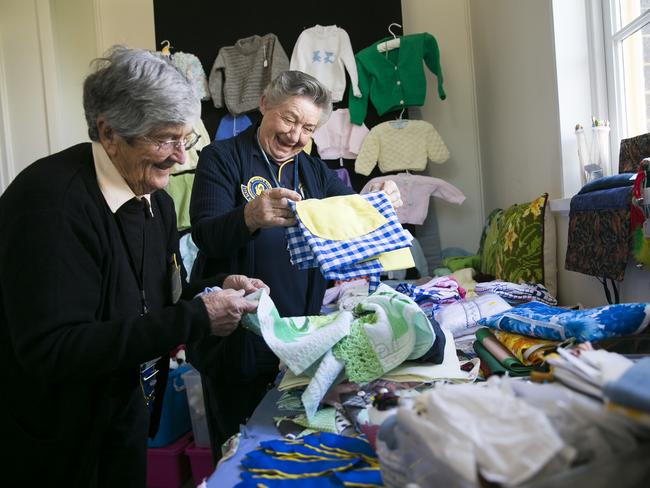
She said it was inequitable that more than 20 per cent of the membership was not eligible to be president and suggested the branch would try again next year.
NSW president Annette Turner rejected claims of a city-country rift, saying a mix of women with different backgrounds and demographics was needed to bring balance to the grassroots organisation.
“There’s not that divide,” she said. “Sometimes it’s in the mindset of the people and not necessarily what we’re about.”

